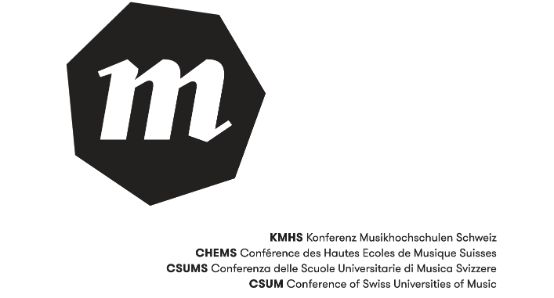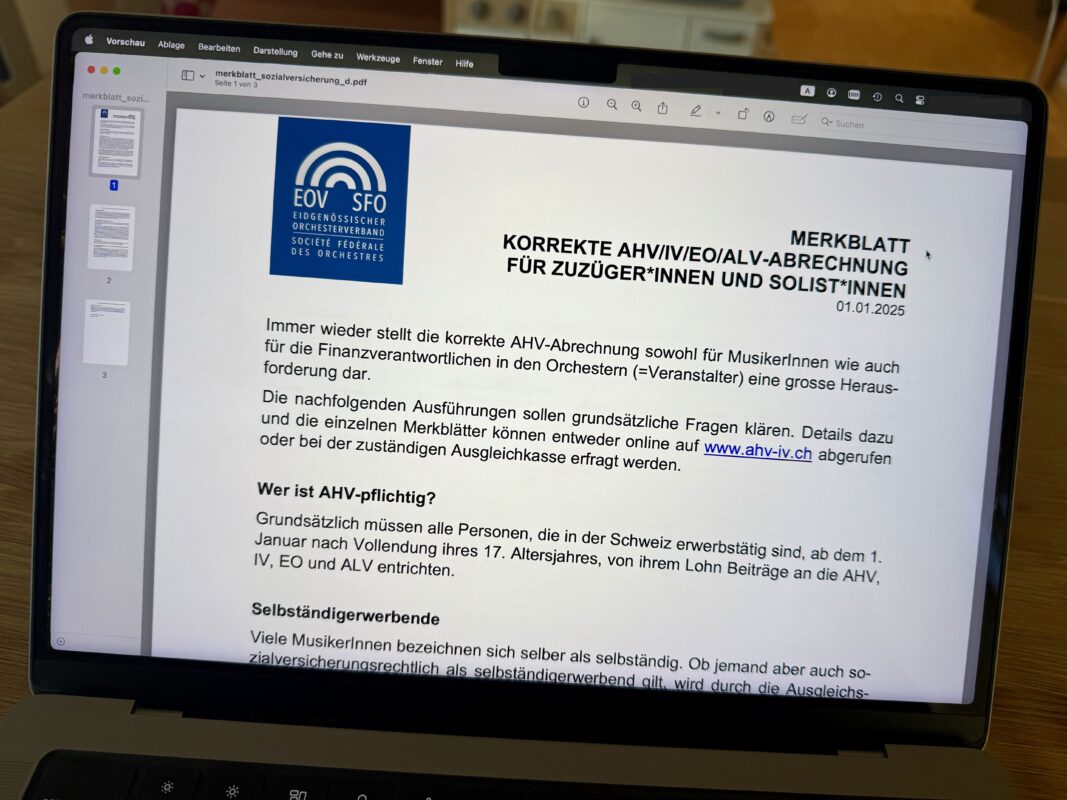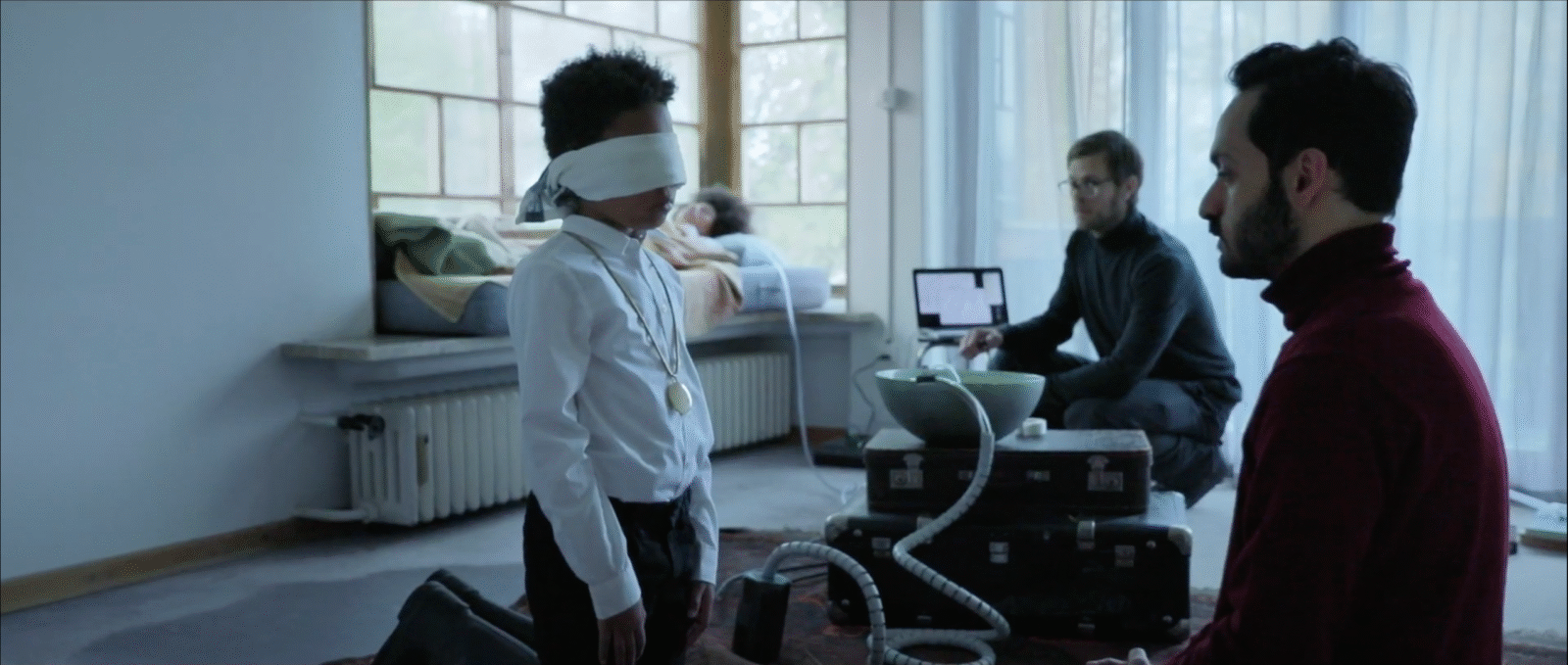Conductors
Women conductors are increasingly present in the world of classical music. This article aims to awaken vocations by reflecting on this phenomenon with the conductor Graziella Contratto.

Antoine Gilliéron - After almost twelve intense years at the head of the music section of the HKB, Graziella Contratto has just left this position. She tells us about her vision of the feminization of the profession as well as support for the next generation of women.
Graziella Contratto, how do you look back on your years at KMHS?
When I took over as head of the Department of Music at the HKB almost 12 years ago, succeeding Romand Brotbeck, I did not know exactly what to expect - and this was probably the case for many colleagues of my generation: I encountered a rather small, but highly individualized university with several niche offerings, an art school in which transdisciplinarity had been established as a basis for artistic work and education from the very beginning. But I also sensed that many of my predecessor's brilliant visions were still waiting to be realized. Back then, I was mainly on the road as a conductor and festival director, had some teaching experience as a music theorist and had worked in Berlin and France for more than ten years - so from a personal point of view, it was both a homecoming and an arrival in open territory. The same applied to my involvement in KMHS.
What view do you have of today's female orchestra leaders and the challenges they still have to face?
The current generation of female conductors is currently experiencing a fantastic period of promotion - I even hear from conducting lecturers that young female orchestra conductors find an agency straight away, while young men of the same age have to worry about sharpening their profile for the first time. But as in previous years, I don't want to reduce this issue to the gender level - we can see that diversity has also arrived in the conducting world. Never before has the cultural background of conductors been so diverse; after a long period of South American 'Dudamelization' and a strong Baltic generation, conductors with African, Indian and Maori roots are now being taken much more seriously - this invigorates the interpretative field immensely, but is also a heavy burden. For me personally, in this context too, the dignity of the music should be at the center, not the cultural affiliation of the conductor; the conducting profession is and remains a challenge - psychological, aesthetic, technical and leadership skills form a complex mix, supported by an artistic maturity that cannot be shortened....., not even by aggressive management....
You were the first woman in the conference: how satisfied are you with the progress KMHS has made in this respect?
I always felt very accepted as a female member of the KMHS, but there were of course topics in which I often reacted with a Mediterranean emotionality - whether this was particularly feminine would have to be answered by my colleagues. The discussions were lively and stimulating, even if we didn't agree on something. You also have to remember that many of my colleagues had been working at KMHS for over ten or twenty years - I was really a beginner and had to get my bearings first. The demands on a university management have grown immensely since Bologna - the complexity of responsibilities, also as a kind of intermediate body with interactions between the federal government, the canton and the Swiss Universities, between the social and cultural realities of the students and the funding bases of the universities, between the links to universities of applied sciences and the artistic desire for an academy-like free-floating existence - I was often glad that each member of the KMHS was particularly well versed in specific issues, and the trust in each other has grown steadily. Noémie L. Robidas - and now also Béatrice Zawodnik - have precisely those qualities as committed and confident (certainly more thoughtful than me) artists and directors that make them ideal colleagues for the KMHS - and I hope that they both contribute to the committee as new, powerful voices, as I did twelve years ago.
What do you look back on with pride when you think about your work as Head of the Music Department at the BUA?
I am particularly proud of four developments and study programmes that I was able to realize together with my fantastic team: On the one hand, the establishment of Europe's first Master's Specialized Performance course with a specialization in Music in Context, which corresponds to a specific Bernese variant of music education, and on the other, the PreCollege Bern HKB for classical music, sound arts and music&movement with a 1001TP3 success rate. The third project close to my heart is the further development of the Opera Studio, which has entered into a cooperation agreement with the theaters in Biel and Bern and will soon be offering opera directing as a unique course for opera singers. At the Bern University of the Arts, I am delighted that more and more music students are subsequently embarking on doctoral studies in the cooperation between the University of Bern and HKB Research / SINTA. SINTA is a unique artistic-creative and scientific doctoral program in Switzerland run by the Faculty of Philosophy and History at the University of Bern and Bern University of the Arts (HKB).
What were the biggest achievements and the main challenges faced by the association during this period?
The KMHS has established itself as a body, has increasingly championed a common position and communication on general issues in the university context, has intelligently transformed politically challenging topics into synergetically supported visions, partly within task forces, working groups or also through the individual initiatives of members. On this KMHS page of smz, you can read every month that topics such as research, the third cycle, professional practice, talent promotion and role models, new Master's models and issues relating to interculturality, diversity, digitality and artist profiles of the future have been and are being shaped, communicated and further developed as diversity and diversification in the KMHS committee. The KMHS is currently also developing new strategies internally, not least through the creation of a General Secretariat and the further development of the activities and objectives of the KMHS initiated by the presidency of Noémie L. Robidas and Vice President Valentin Gloor. I was struck by how agile the KMHS was during the pandemic - despite all the pressure, it was really impressive to see how quickly, efficiently and cooperatively the former competitors worked to find solutions.
With your rich experience as head of the music department at the HKB, what is your vision for the development of higher music education in Switzerland in the coming years?
Higher education seems to be developing in merveille, where we find a mélange équilibré between quality and openness, practice and research, artistic and sociocultural awareness, analog and digital. Sense and sensibility - a magnificent title of a novel by Jane Austen, often badly translated elsewhere - exactely reflects for me this tension, positive and full of inspiration for the teaching of the future. Le sens en tant que perception multisensorielle de notre existence pour rendre audible notre art comme musique/son/installation/improvisation/mouvement/geste/vision sonore, etc.. The sensibility as reason, reflection and mirror of the reality that entails our students and in which the musicians of the future will express their art and convey their ideas to society in the future. As far as tradition is concerned, I believe that the demands of classical music in terms of high-level interpretation of the works of the musical canon must continue to be respected; they are part of our heritage, to be sure, but they still offer a magnificent basis for developing other things, a different musical world, later on.
What advice do you give to young musicians who wish to pursue higher music studies or are currently in training to do so?
At present, the Z generation among high schools - often of an incredible openness of mind, of awareness of many even extreme trends, strongly formed by a diverse multiperspective, nourished by a permanent desire for communication, I feel a little old in proposing this : in order to propose to your future public a narrative that will lead the way, it is essential to know and understand the lines of art, culture and music in which one aims to excel one day. A narrative develops - in my opinion - thanks to a research and a permanent critique of the sources - and a ludic, but pertinent, questioning of the message that you want to pass. A philosopher from Germany says that zapping and swiping prevent us from developing a narrative because we let ourselves be distracted by different options, by the elements that disappear after illuminating our attention for two seconds... But : le sens critique, l'introspection silencieuse pour approfondir l'enquête de votre Art, et après la joie inouïe de partager le narratif avec d'autres être humains - c'est ce que je souhaite à la nouvelle génération de musicien.ne...
In your opinion, what can the Swiss music schools do to promote even more gender equality in the training courses they offer and perhaps also in their interaction with initial and pre-professional training courses?
I personally experienced the gender mix at the HKB as a matter of course, although there are still more women studying rhythm, for example, and more men studying jazz. The current generation of millennials, who are currently filling music studies from within with completely new demands, experiences and - I call it this - post-dialectical expectations, are overlaying the old gender discourse with a kind of diversity hyperbole, with a new alertness that reacts at lightning speed to possible disadvantages, injustices or no longer justifiable attitudes in the political-artistic context. This specific energy is a challenge for universities (and the KMHS will deal strategically with this phenomenon in depth) and an opportunity. If I may be completely honest, for me the solution to gender issues is rarely found in the ideological untangling of sometimes diffuse accusations, but rather in the encouragement for students to tackle the topic artistically - in transdisciplinary settings, creative processes, in moments of failure as well as success, and always: in the encounter with the other, previously suspected, then close.
"Musicians conquering their image", published in Hémisphères, a Swiss review of research and its applications.








